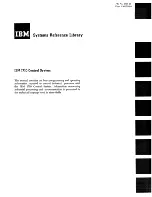
3. OPERATION
Page 35
© 2009 DH Instruments, a Fluke Company
PPCH Q-RPTs allow instantaneous switching between gauge and absolute measurements
modes. Any additional uncertainty in gauge measurement mode due to the dynamic
compensation for atmospheric pressure technique is a function of the resolution and short
term stability of the on-board barometer, not its absolute measurement uncertainty.
This additional uncertainty, ± 1 Pa (0.00015 psi), is insignificant in the pressure ranges
covered by PPCH.
3.2.5
MULTIPLE INTERNAL AND EXTERNAL Q-RPTS
A base PPCH pressure controller includes a high precision, utility pressure sensor whose
range is equal to the controller’s range. The utility sensor is not intended to serve as a
pressure reference for low uncertainty measurement. It is for indication, pressure control,
system safety and maintenance functions only.
To obtain low uncertainty, traceable pressure measurement, PPCH uses Quartz Reference
Pressure Transducers (Q-RPT). Up to six Q-RPTs can be included in a PPCH pressure
controller/calibrator system. One or two Q-RPTs can be built into the PPCH, up to two may be
located outside the PPCH enclosure in RPM4 reference pressure monitors (one or two per
RPM4). Once the Q-RPTs available to a PPCH system have been set up and identified,
communication with them is managed by PPCH transparently to the operator. However,
setting up hardware and following procedures to protect lower pressure Q-RPTs from
overpressure when higher pressure Q-RPTs are used is the responsibility of the user.
Take precautions not to overpressure external Q-RPTs when using them with a PPCH. When
using external Q-RPTs in RPM4s as reference pressure measurement devices with a PPCH, the
user is responsible to setting up hardware and following procedures to protect lower range Q-
RPTs from overpressure. Only the Lo Q-RPT (IL) built-into the PPCH is protected automatically.
Communication between RPM4s and a PPCH controller is by daisy chained RS232
connections from PPCH’s COM2 port.
The PPCH RPT function (see Section 3.3.5) is used to identify Q-RPTs available to the
PPCH. The PPCH then manages communication with the internal and external Q-RPTs
transparently to the operator, selecting the appropriate Q-RPT for the range of operation and
configuring it as specified.
Each Q-RPT has a default range, which is its maximum range. It can also be downranged
using PPCH’s AutoRange function.
Before operating PPCH with an external Q-RPT, check carefully that the RPM4’s Q-RPT
TEST(+) port is connected to the PPCH TEST port. If an external Q-RPT is NOT connected to the
PPCH TEST port, it will NOT measure the pressure generated by PPCH and PPCH may reach a pressure
higher than the target pressure before its watchdog function recognizes that the external Q-RPT
is not connected (see Section 3.4.4.1). The PPCH watchdog function monitors differences in the
change in pressure indicated by an active, external Q-RPT and the PPCH Hi utility sensor or Q-RPT
(watchdog). If the difference becomes excessive, control is aborted, an audible warning sounds
and a warning is displayed.
If this occurs, make sure the PPCH and RPM4 Q-RPT TEST(+) ports are connected together and
try again.
Position Identification of Q-RPTs In a PPCH System
Position identification of the currently active Q-RPT or utility sensor in the PPCH system is
continuously displayed in the upper right hand corner of the PPCH’s MAIN RUN screen and
most other screens (see Section 3.1.1). See Table 6 for position designation protocol for the
Q-RPTs available in a PPCH system.
















































